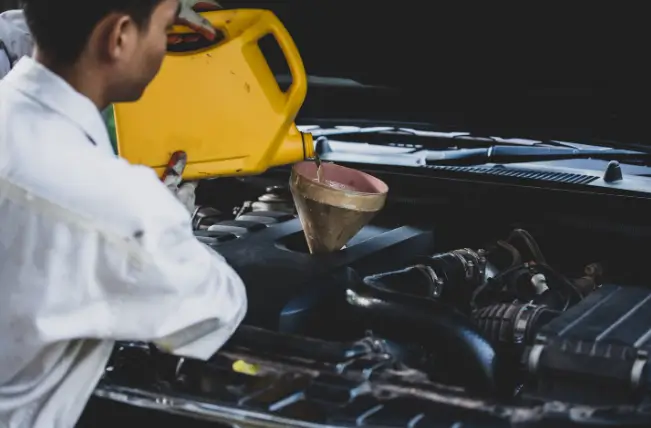Many people assume that getting serious help for addiction or mental health problems means packing a bag and heading to some treatment center hundreds of miles away. The idea of traveling across the country for treatment has become so common that local options often get overlooked or dismissed as less effective. But the reality is quite different from what most people expect.
Getting treatment in your own area brings both advantages and challenges that might surprise you. The experience isn’t just about the clinical care you receive – it’s about how staying connected to familiar places, people, and routines affects your entire recovery process.
The Privacy Question Everyone Worries About
One of the biggest concerns people have about local treatment is privacy. Nobody wants to run into their boss at the treatment center or have neighbors wondering why they’re going to counseling appointments three times a week. These worries are completely understandable, but they’re often based on outdated ideas about how treatment works.
Modern treatment facilities understand privacy concerns and have policies in place to protect client confidentiality. Many centers have separate entrances, private parking areas, and scheduling systems designed to minimize unwanted encounters. The fear of being seen often turns out to be much worse than the actual reality.
Treatment programs such as Legacy’s drug treatment centers in michigan and similar local facilities recognize that privacy concerns can prevent people from seeking help, so they’ve developed approaches that respect people’s need for discretion while still providing comprehensive care. These programs understand that maintaining privacy isn’t just about avoiding embarrassment – it’s about creating conditions where people feel safe enough to engage fully in their recovery process.
The truth is that most people are too focused on their own lives to pay much attention to where others are going or what they’re doing. The judgment and scrutiny that people fear rarely materializes in the way they imagine.
Being Close to Your Support System
Having family and friends nearby during treatment creates opportunities that distant programs simply can’t offer. Your spouse can attend family therapy sessions without taking time off work for travel. Your kids can visit regularly instead of waiting weeks or months to see you. Parents can be involved in your recovery without the logistical nightmare of coordinating visits across state lines.
This proximity allows for gradual reintegration of relationships during the healing process. Instead of being cut off from loved ones during treatment and then suddenly returning to navigate complex family dynamics, local treatment allows for ongoing relationship work throughout recovery.
Friends who want to support your recovery can actually do so when you’re receiving treatment nearby. They can attend support group meetings with you, help with transportation to appointments, or simply be available for coffee and conversation when you need encouragement.
Learning to Handle Real Life While Getting Help
Here’s something most people don’t think about – when you get treatment close to home, you’re practicing recovery skills in the exact same places where your problems started. You’ll still drive past that bar where you used to drink, deal with the coworker who stresses you out, and face the same family drama that used to send you running for substances.
That might sound scary, but it’s actually really helpful. Instead of learning healthy coping strategies in some perfect treatment bubble and then trying to remember them when you get back to the real world, you’re figuring out how to handle triggers and stress with professional support right there to help you.
You’re also dealing with the same everyday annoyances that can affect your mood and recovery. Bad traffic, crappy weather, your usual work schedule, and all those little daily hassles that used to push you toward unhealthy choices. Learning to manage these ordinary frustrations while in treatment builds stronger, more realistic coping skills.
Why Familiar Places Can Actually Help You Heal
There’s something really comforting about sleeping in your own bed and eating meals you actually enjoy while working through serious problems. Having some normal parts of life stay the same provides stability when everything else feels chaotic and uncertain.
Your hometown probably has places that make you feel good – maybe it’s a park where you used to walk as a kid, a coffee shop where you feel relaxed, or a bookstore where you can lose yourself for hours. These positive spaces become part of your recovery toolkit in ways that wouldn’t be possible if you were getting treatment somewhere else.
Even boring practical stuff helps more than you’d expect. Knowing where to find things you need, which roads to take to avoid traffic, and how to navigate your daily routine reduces stress and frees up mental energy for the harder work of recovery.
Keeping Your Life Together While Getting Better
One of the biggest advantages of local treatment is being able to keep working, take care of your kids, or help with other family responsibilities. For many people, disappearing for months isn’t financially possible or fair to the people who depend on them.
Staying employed during treatment keeps money coming in and maintains relationships with coworkers and bosses. It also helps you feel competent and successful in at least one area of life while you’re working on the areas that need fixing.
Parents especially benefit from staying local because they can be present for their children’s daily needs and important events. Kids need consistency, and being able to continue parenting while getting help often makes recovery feel more meaningful and worthwhile.
When Home Isn’t the Best Place for Recovery
Local treatment doesn’t work for everyone, and it’s important to be honest about that. Some people live in environments that make recovery really difficult – maybe everyone around them drinks heavily, or drugs are easily available, or family relationships are toxic and enabling.
Sometimes the people closest to you are actually part of the problem. Family members who don’t want you to change, friends who pressure you to drink or use, or romantic partners who sabotage your recovery efforts can make local treatment much harder than it needs to be.
There’s also the practical reality that not every area has good treatment options. Smaller towns and rural areas often have limited resources, and you might have to choose between traveling for quality care or settling for mediocre help that’s available locally.
Building Local Recovery Communities
One unexpected benefit of local treatment is becoming connected to recovery communities in your own area. Support groups, sober social activities, and ongoing counseling relationships all become part of your local network.
These connections often continue long after formal treatment ends, providing ongoing support and accountability within your regular community. Having recovery friends who live nearby means having people who understand your journey and can provide encouragement during difficult times.
Local recovery communities also offer opportunities to help others who are just beginning their journey. Being able to share your experience and support newcomers creates meaning and purpose that strengthens your own recovery.
When Local Treatment Makes the Most Sense
Local treatment works especially well for people who have strong, healthy relationships in their area and responsibilities they can’t leave behind. It’s also ideal for those who feel anxious about being far from familiar support systems during vulnerable times.
People with jobs they want to keep, children who need them present, or aging parents who require care often find that local treatment allows them to address their problems without abandoning other important commitments.
Local treatment can also be more cost-effective since it eliminates travel and lodging expenses while allowing people to maintain their income through continued employment.
Making Local Treatment Work for You
Success with local treatment often requires being honest about which aspects of your local environment support recovery and which ones create challenges. This might mean avoiding certain places temporarily, setting boundaries with specific people, or making changes to daily routines.
It’s also important to take advantage of the unique opportunities that staying local provides. Involving family in treatment, using familiar community resources, and practicing recovery skills in real-world situations can all contribute to more sustainable long-term success. The key is working with treatment providers who understand both the advantages and challenges of local care and can help you navigate them effectively. With the right support and approach, getting help close to home can be just as effective as traveling anywhere else – and often more practical for building a recovery that fits your real life.




